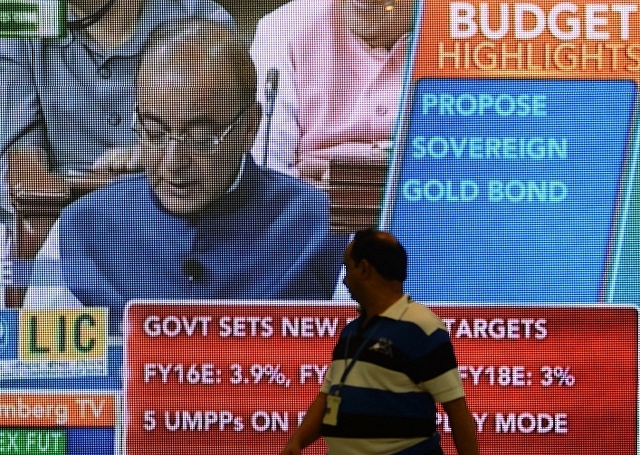
Government Still Believes In 7.6% Growth As Jaitley Stares At Pay Panel Burden
It is expected that government will focus on growth by increasing public spending as private investment stays muted due to an uncertain global environment.
Officials with direct knowledge of budget discussions said Jaitley could raise taxes on services and petroleum products to help cover the extra outlays.
Analysts say the country’s finances and economic performance, a rare bright spot for emerging markets over the past two years, are now under close investor scrutiny.
The government will now stay with the figure of 7.6 per cent growth for the current fiscal. Mentioning it as “very, very significant”, Economic Affairs Secretary Shaktikanta Das today expressed the government’s commitment to work towards boosting economic growth. India grew at 7.2 per cent last fiscal.
The statement has come in a week before the presentation of Budget 2016-17 by Finance Minister Arun Jaitley in the parliament.
It is expected that government will focus on growth by increasing public spending as private investment stays muted due to an uncertain global environment.
Speaking on the ministry’s YouTube channel he said “the world economy today is experiencing the kind of the volatility which we never saw earlier. Today we have come to a position we do not know what is going to happen the very next day in which part of the world. We live in a global village. Therefore, whatever happens in any part of the world affects us because India over the last several years is getting increasingly globalised.”
He said the government is committed to not just maintaining growth, but improving it.
“Growth is important because growth leads to job creation, growth leads to more opportunities, more economic activities which lead to more development,” he said. Meanwhile, a Rs. 1.1 lakh crore pay rise for government employees and costly food and farm programmes could force Jaitley to cut capital spending in its annual budget.
The spending pressure on Jaitley threatens to worsen imbalances in India’s $2 trillion economy as consumption outpaces investment. A populist budget, ahead of assembly elections in four states this year, could stoke inflation even as structural measures such as Prime Minister Narendra Modi’s proposed tax and labour reforms look less likely.
It could also eat into capital spending needed for railways, roads, ports and power projects, seen as vital to India’s integration into the global economy.
Jaitley presents his third budget on 29 February, and is expected to implement the recommendations of a government commission to raise pay for 1 crore government workers and pensioners by 23.5 per cent.
While that hike would boost demand, economists question whether a policy dating back to an era of double-digit inflation is justified today, when Reserve Bank of India Governor Raghuram Rajan has driven consumer price growth below six percent.
Officials with direct knowledge of budget discussions said Jaitley could raise taxes on services and petroleum products to help cover the extra outlays.
He would still have some room to ease tax rules on foreign investment and hit his deficit target of 3.5 per cent of gross domestic product in the 2016/17 fiscal year.
The promised pay hike, an increase in food subsidies and a new crop insurance scheme for farmers would cost at least Rs. 1.2 lakh crore - equivalent to 0.9 per cent of forecast GDP in 2015/16.
India’s cash-strapped state railways, which employ 13 lakh, are also seeking central funds to cover higher pay - squeezing its investment budget and creating pressure to hike fares. Most of India’s 29 states will raise wages soon.
Analysts say the country’s finances and economic performance, a rare bright spot for emerging markets over the past two years, are now under close investor scrutiny.